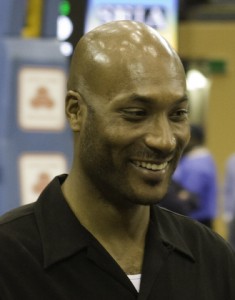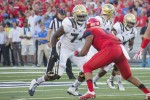College athletes have long been considered amateurs due to the lack of pay provided for their work. Since January, this standing has been cast into doubt as an antitrust lawsuit against the NCAA made major developments in the lives of student athletes, allowing them to receive larger stipends toward living costs.
However, on Wednesday, a three-judge panel upheld the ruling that NCAA members did not need to pay their student athletes, eliminating the chance for these individuals to receive money for advertising and marketing deals.
The proceedings have commonly been known as the Ed O’Bannon case, as O’Bannon, a former UCLA basketball player, is the lead plaintiff. O’Bannon is one of the most prominent critics of the NCAA’s approach to compensating students, especially when the organization profits off using athletes’ names and likenesses – the most egregious example being NCAA video games and jersey sales.
“The Rule of Reason requires that the NCAA permit its schools to provide up to the cost of attendance to their student-athletes,” the panel wrote in its decision. “It does not require more.”
What seems most maddening to student-athletes is the fact that the amount of time and effort they invest in collegiate competition is unanimously considered “work.” The NCAA knows this, but refuses to acknowledge that these individuals deserve anything more than a college education.
This attitude actually devalues that education. Student-athletes like former freshman basketball star Kevon Looney are further motivated to leave UCLA without a degree since they can make money by leaving after a single season in Westwood for the NBA or other professional leagues.

Being a UCLA student-athlete is essentially a full-time job, between games, practice, weight lifting, film study and team meetings. During the season, students often cannot balance a job on top of their other responsibilities, putting them at a disadvantage against other UCLA students who can afford to study and work to offset the costs of being a college student.
The UCLA administration has taken this into account, announcing in July that it would offer an additional $5,500 to student-athletes, intended to cover the costs of food, travel and living expenses. In previous history, scholarships had only covered room and board, tuition and academic incidentals such as books.
Full-scholarship athletes can receive stipends of up to $5,624 if living off-campus and $4,925 if living in the dorms. Some athletes, however, still seem to think this isn’t enough.
UCLA football junior offensive lineman Caleb Benenoch called the NCAA out on Twitter on Aug. 25.
“Might have to become an Uber driver so I can get this rent money,” he posted.
He followed up that tweet with a GIF of Jonah Hill shaking his head with the caption: “Me: can I get enough money to pay my rent this month? NCAA:” insinuating that the NCAA just shakes its head at these requests.
While Benenoch and other scholarship athletes do receive money toward costs such as rent, the football player’s argument is that it is not enough, and doesn’t match the value of his work.
By wrongly assuming that its responsibility to student-athletes lies only in paying their tuition, the NCAA is devaluing the work these college students apply to both their academics and athletics. Additionally, it is completely ignoring the importance of these individuals’ quality of life.
The NCAA needs to acknowledge the inconsistencies in its policies and make changes accordingly.
